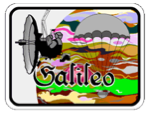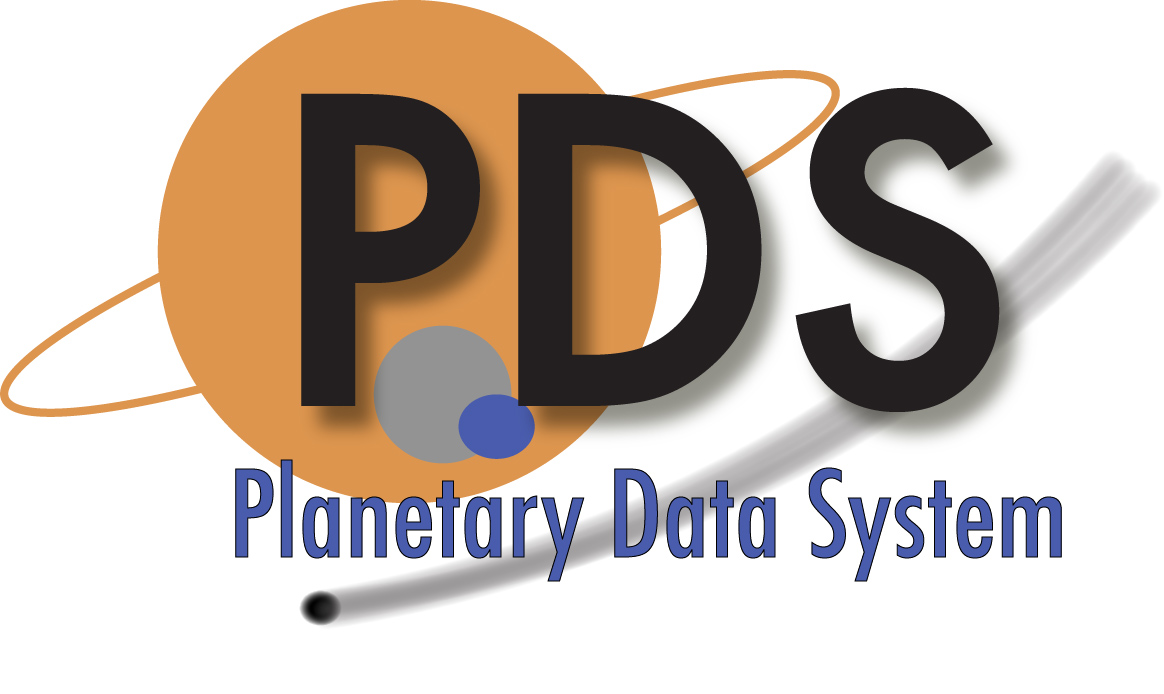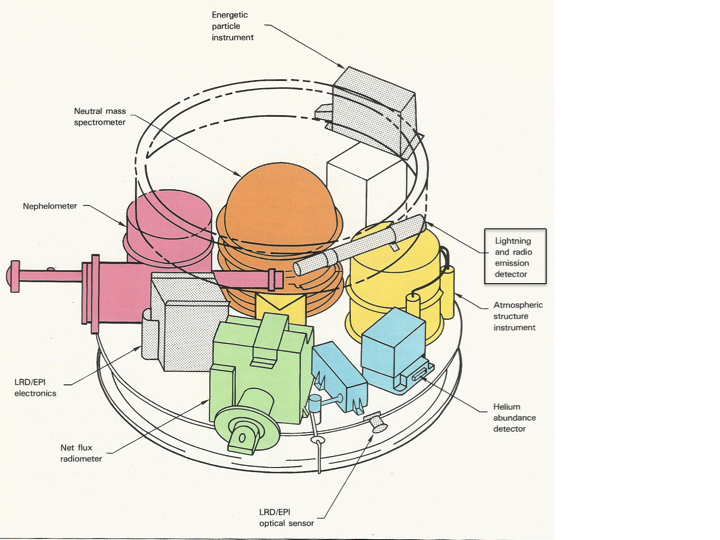
The Lightning and Radio Emission Detector (LRD) instrument was carried by the Galileo Probe into Jupiter's atmosphere. The LRD verified the existence of lightning in the atmosphere and its basic characteristics. Also, the instrument, operated in its magnetospheric mode at distances of about 5, 4, 3, and 2 planetary radii from Jupiter's center to measure the radio frequency (RF) noise spectrum in Jupiter's magnetosphere.
Access to the Galileo Probe Data Volume
Citing the data
Publications - A listing of team members to facilitate literature searches.
References Helpful in Scoping the Mission
The Lightning and Radio Emission Data
Review Article
Instrument Description
The Data from this instrument were lost due to the death of Co-Investigator Klaus Rinnert. The following references will have the best information that the investigators had available.
Lanzerotti, L. J., K. Rinnert, G. Dehmel, F. O. Gliem, E. P. Krider, M. A. Uman, G. Umlauft and J. Bach, The Lightning and Radio Emission Detector Instrument, Space Sci. Rev. 60, pp. 91-109, 1992
Lanzerotti, L. J., K. Rinnert, G. Dehmel, F. O. Gliem, E. P. Krider, M. A. Uman and J. Bach, Radio Frequency Signals in Jupiter’s Atmosphere, Science 272, pp. 858-860, 1996.
Rinnert, K., L. J. Lanzerotti, M. A. Uman, G. Dehmel, F. O. Gliem, E. P. Krider and J. Bach, Measurement of radio frequency signals from lightning in Jupiter's atmosphere, J. Geophys. Res. 103, 22979-22992, 1998.
Rinnert, K. and L. J. Lanzerotti, Radio wave propagation below the Jovian ionosphere. J. Geophys. Res. 103, 22993-22999, 1998.
Instrument Description
The Data from this instrument were lost due to the death of Co-Investigator Klaus Rinnert. The following references will have the best information that the investigators had available.
Lanzerotti, L. J., K. Rinnert, G. Dehmel, F. O. Gliem, E. P. Krider, M. A. Uman, G. Umlauft and J. Bach, The Lightning and Radio Emission Detector Instrument, Space Sci. Rev. 60, pp. 91-109, 1992
Lanzerotti, L. J., K. Rinnert, G. Dehmel, F. O. Gliem, E. P. Krider, M. A. Uman and J. Bach, Radio Frequency Signals in Jupiter’s Atmosphere, Science 272, pp. 858-860, 1996.
Rinnert, K., L. J. Lanzerotti, M. A. Uman, G. Dehmel, F. O. Gliem, E. P. Krider and J. Bach, Measurement of radio frequency signals from lightning in Jupiter's atmosphere, J. Geophys. Res. 103, 22979-22992, 1998.
Rinnert, K. and L. J. Lanzerotti, Radio wave propagation below the Jovian ionosphere. J. Geophys. Res. 103, 22993-22999, 1998.
Other Documentation
Access to the Galileo Probe Data Volume
PDS recommendations for citing data sets can be found here.
Lanzerotti, Louis, (1996), Galileo Probe LRD Data Set, PDS Atmospheres (ATM) Node, https://doi.org/10.17189/ezcc-4h27
Lanzerotti, Louis, (1996), Galileo Probe LRD Data Set, PDS Atmospheres (ATM) Node, https://doi.org/10.17189/ezcc-4h27
Publications - A listing of team members to facilitate literature searches.
 PDS: The Planetary Atmospheres Node
PDS: The Planetary Atmospheres Node


